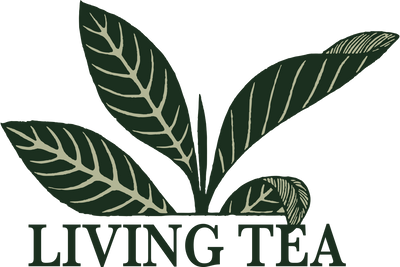Anything coffee can do, tea can do better.
Let's admit it--coffee can make you crash. Plus, it's a bit addictive. I know, I used to need my cup of joe every few hours. Traditional red tea, however, (what we in the West call black tea) can leave you with lasting energy without the jitters or crash.
While the caffeine in tea and coffee is the same compound, the caffeine in tea is initially trapped by its own polyphenols and tannins, and is then released gradually, for up to ten hours at a time. Thus, there is no "crash," but a period of sustained stimulation. The caffeine from tea can sharpen the mind, increase concentration and eliminate fatigue, all while keeping you feeling relaxed.
Yes, some bagged red/black teas can make you jittery, but this is most likely due to chemicals rather than caffeine content.
Living Teas are seed-grown in their native environments, free of any chemical fertilizers, pesticides or weed-killers, and they will never make you jittery.
If you're looking for some sort of caffeinated beverage to indulge in, red tea is invigorating and steady, and ideal for the morning as the yang energies of the day are rising. Living Tea seeks out seed-grown, hand-processed red tea with beautifully shaped leaves and infusions that are best savored without any additives. Generally, red tea is known for its robust "fully-oxidized" flavor profile, strong pervasive Qi, mild sweetness and "awakening" quality.
Of all Living Teas, red teas have the highest caffeine content. Yet they provide a less "speedy" energy than coffee, which spikes your adrenaline, the source of the “fight or flight” response. One of the important qualities that we seek in our red teas is a sense of calm energy, rather than jittery stimulation. If you're looking for steady energy with very little caffeine, check out Puerh rare and aged teas.Here's a quick chart of standard amounts of caffeine contained in different types of coffee and tea:
It's worth noting that there's a huge variety in caffeine levels even among the same types of tea. This can depend on many factors: when the tea was picked, its level of oxidation, and your own brewing method.
For instance, tea brewed for longer times with hotter water will coax higher levels of caffeine out of the leaves. If you are a person who is sensitive to caffeine, try brewing white or green teas with fewer leaves and cooler water.
Happy tea-time, friends.

